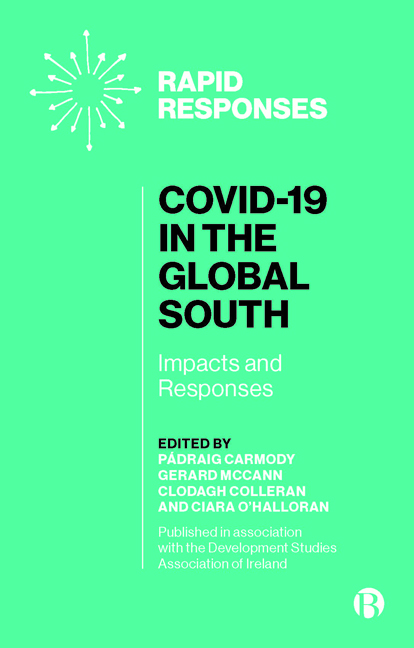16 - The Health Impact Fund: Learning from COVID-19
Published online by Cambridge University Press: 23 March 2021
Summary
We are living in the shadow of the COVID-19 pandemic – anxious about our families, our friends and ourselves, depressed by worldwide suffering and anxiety, upset by knowing that once more the poor and marginalized are worse affected. Could the rules and practices organizing healthcare around the world have been better suited to this outbreak? Let us consider the Health Impact Fund as a plausible institutional reform of the current regime for developing and marketing new pharmaceuticals.
The pharmaceuticals sector
Medicines are among humanity's greatest achievements. They have helped realize dramatic gains in health and longevity as well as huge cost savings through reduced sick days and hospitalizations. The global market for pharmaceuticals is currently worth US$1,430 billion annually, 1.7 per cent of the gross world product (IFPMA, 2017: 5). Roughly US$800 billion thereof is spent on brand-name products, which are typically under patent (IFPMA, 2017: 51).
Commercial pharmaceutical research and development (R&D) efforts are encouraged and rewarded through the earnings that innovators derive from sales of their branded products. These earnings largely depend on the 20-year product patents they are entitled to obtain in WTO member states. Such patents give them a temporary monopoly, enabling them to sell their new products without competition. Under the protection of their patents, they can raise a product's price far above manufacture and distribution costs while still maintaining a substantial sales volume. Such mark-ups yield large profits for commercial innovators and enable them to invest in new R&D, currently at a rate of US$189 billion a year (Mikulic, 2020).
While we should evidently want pharmaceutical R&D to be sustainable, it is worth asking whether our current way of funding is optimal. There are three main concerns.
Firstly, innovators motivated by the prospect of large markups tend to neglect the – mostly communicable – diseases specific to poor people, who cannot afford expensive medicines. The 20 World Health Organization-listed neglected tropical diseases together afflict over a billion people (WHO, n.d.) but attract only 0.35 per cent of pharmaceutical industry R&D (IFPMA, 2017: 15 and 21). Another 0.12 per cent of this R&D spending goes to tuberculosis and malaria, which kill 1.7 million people each year.
- Type
- Chapter
- Information
- COVID-19 in the Global SouthImpacts and Responses, pp. 173 - 182Publisher: Bristol University PressPrint publication year: 2020
- 1
- Cited by

